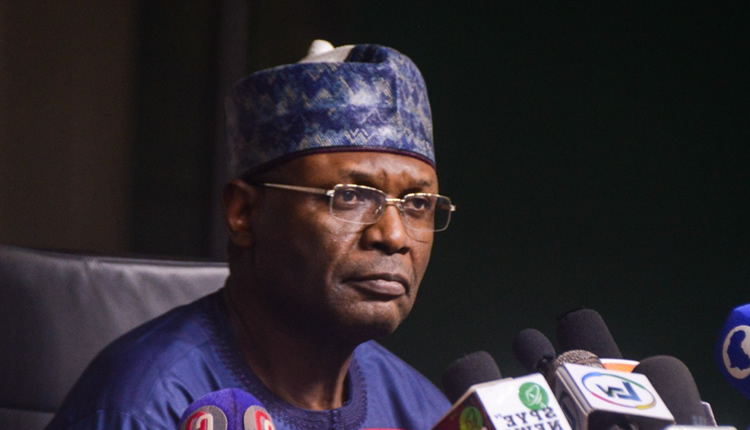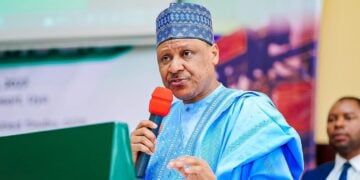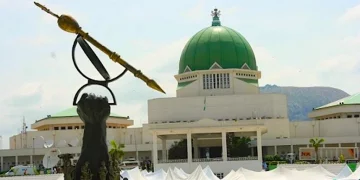Once dreaded as the polls that have the potential of upturning the apple cart, the 2023 elections have come and gone, with less than governorship election in two states, Kebbi and Adamawa, yet to be concluded. The outcomes of both the February 24th and 18th March polls have left a crater of confidence in the electoral system. The elections are now mostly concluded, but the task of resolving some of the puzzles created by the polls is increasingly becoming an uphill task.
If the outcomes of the Presidential and National Assembly polls left fiery discordant voices over the inviolability of the votes unresolved, last week’s Governorship and State Houses of Assembly elections led to revolting reverberation of protests in some states, thus showcasing the perceived deepening of our democracy as shallow and without substance.
The wave of protest in some states was too obvious to be ignored. While governors seeking re-election scaled through the wall of victory, some outgoing governors, having completed their two terms in office, failed to secure tickets to the red chamber of the National Assembly.
Supporters of some defeated parties in the states poured into the street to protest against what they described as ‘orchestrated falsification of the vote’ in favor of some candidates. More distressing within the week is a trending video clip where women protested against the result of the Nasarawa Governorship Poll, with a stark naked woman praying against electoral fraudsters.
If the Nasarawa episode was not enough to portray public anger, there was a mild but temporal relief in Kaduna when rumour went agog that the Peoples Democratic Party (PDP) had trounced the All Progressives Congress (APC) in the governorship poll. From Zaria to Kafanchan, Kaduna to Kachia the citizens became enmeshed in wild celebrations as brooms were set ablaze.
However, the APC in Kaduna turned out to be a cat with nine lives as the party was later declared winner of the poll by the Independent National Electoral Commission (INEC). The winning figures are still contentious as both the Kaduna APC and PDP are still embroiled in claims and counter claims in a bid to swing public perception ahead of the commencement of legal fireworks. An attempt by the PDP agent at the collation centre to question the veracity of the figures was summarily dismissed by the returning officer who said the centre was not a court. For now, the final verdict as to who is the duly elected governor in some of the states is now left to the courts.
In Adamawa State, the early announcement of the APC as winner of the governorship race threw everyone into a frenzy, with gender advocates screaming to high heavens that, at last, Nigeria has produced the first female governor. The social media platforms became a dance hall as a video clip of the female governor celebrating her electoral victory gathered traction. After googling relevant news sites to confirm the emergence of the first female governor, it became obvious to yours sincerely that the Adamawa female governorship candidate of the APC took to the dance hall too early in the day. There were still battlegrounds unconquered. In a contest described as one of the fiercest in the history of Adamawa governorship elections, the 18th March governorship poll was declared inconclusive by the electoral commission. Also in the list of states where polls were considered not concluded was Kebbi State. As at the time of writing this article yesterday, the Professor Mahmood Yakubu-led INEC was yet to declare what it intends to do in concluding the governorship polls in the two states.
Enugu and Abia states locked horns in an energy-sapping electoral combat between the PDP and Labour Party (LP) over who should be declared victorious in the governorship race. After several days of feuding, trailed by contradicting figures on social media platforms, the INEC finally gave the crown to the LP on Thursday.
As shouts of joy resounded among Abia LP supporters, Enugu became the next. Few hours before the final announcement of who picks the Enugu governorship crown, supporters of the two leading parties were engaged in unleashing unstable figures in a bid to convince citizens of their parties’ victory. When finally the results were declared a few hours after the Abia result, the PDP took the day. In states like Zamfara, Kano, Katsina, Jigawa, Yobe, Plateau, Taraba, Benue, Borno, Niger, Kwara, among others, proved less hectic as the controversy witnessed in these states was less.
The polls gave credence to the view of an English philosopher and theorist, Nick Land, who insists that the common interest of politicians overrides all other interests once public support is obtained on corrupt platforms.
According to the writer, “As soon as politicians have learnt to buy political support from the ‘public purse’, and conditioned electorates to embrace looting and bribery, the democratic process reduces itself to the formation of (Mancur Olson’s) ‘distributional coalitions’ – electoral majorities mortared together by common interest in a collectively advantageous pattern of theft.”
In Nigeria, democracy may not reflect the decision of the majority, but a small power cabal that controls democracy is strong enough to make the minority votes more powerful than the majority. Collaboration with some rogue elements in the electoral body and the deployment of poverty as a weapon of coercion of the masses by those in the corridor of power continue to remain a tool for control.
If the results of the polls are anything to go by, then, the road to true democracy as defined by former United States President Abraham Lincoln could take a long time before Nigerians arrive at the shore of democracy to reap its benefits. Despite the manifestation of the weaknesses of democracy, citizens are still determined in upholding a solemn pledge to wrest their inalienable rights from the indomitable will of a power cabal that is poised at foisting its choice on them.
Despite the strong winds against democracy, following the storms of doubts over the conduct of the recently concluded polls, Nigerians are finding the wordings of the Turkish playwright and thinker, Mehmet Murat iLdan, inspiring: “In a democracy, when the traffic light is red for freedoms, don’t ever stop, don’t ever wait! Refuse the red light, ignore it, break the rules and move forward! It is always legitimate to challenge fascism for every nation in the world as long as this challenge is nonviolent! Because violence means using the same vulgar, the same evil methods of fascism! Don’t behave like a dog when fighting against a dog!”
That the outcries against results of the polls are coming during the Lent and Ramadan period for Nigeria’s two dominant faiths may explain the reason behind the current calm and resort to approaching the courts for final arbitration of the electoral feud, and calls for divine intervention, if the court refused to do the needful. While none of the parties can claim innocence in compromising the electoral system, not a few believe that complex issues must be legally unravelled to prove the sacredness of the ballot that gave victory to Asiwaju Bola Ahmed Tinubu and some governors-elect.
The influence of power in deciding the direction of electoral victory was demonstrated, ahead of the presidential poll. Before the elections, there were allegations that the Aso Villa power cabal was against the presidential candidature of Senator Tinubu. Against this backdrop, it remains inscrutable how the former Lagos governor scaled the hurdle and emerged victorious. The lesson learned here is: The alleged impression of disharmony created in some circles to portray the Muhammadu Buhari Presidency as opposed to the triumph of Tinubu turned out to be a blessing.
Whether the Buhari Presidency was hand in glove with the Tinubu camp in securing victory for the APC may take a while to untangle.
While most of the outgoing governors lost their senatorial contest, a fact that must not escape our attention is that none of the governors seeking re-election was forced to kiss the dust. That clearly shows that in Nigeria’s democracy, not a few will ever risk becoming former President Goodluck Jonathan who in 2015 conceded electoral victory to Major General Muhammadu Buhari ahead of INEC’s formal announcement.
In the 2023 polls, Nigerians, no doubt, have resolved to embrace the weaknesses of democracy, rather than succumb to the evil machinations of anti-democratic forces. By resorting to legal means to challenge injustices, the capacity of deepening democracy in our country is not lost. However, the letdown in the confidence levels of electorates in the indispensability of the ballot box in the emergence of democratic government must be redeemed by the courts by ensuring that justice is meted to perpetrators of electoral malpractices.
We’ve got the edge. Get real-time reports, breaking scoops, and exclusive angles delivered straight to your phone. Don’t settle for stale news. Join LEADERSHIP NEWS on WhatsApp for 24/7 updates →
Join Our WhatsApp Channel










